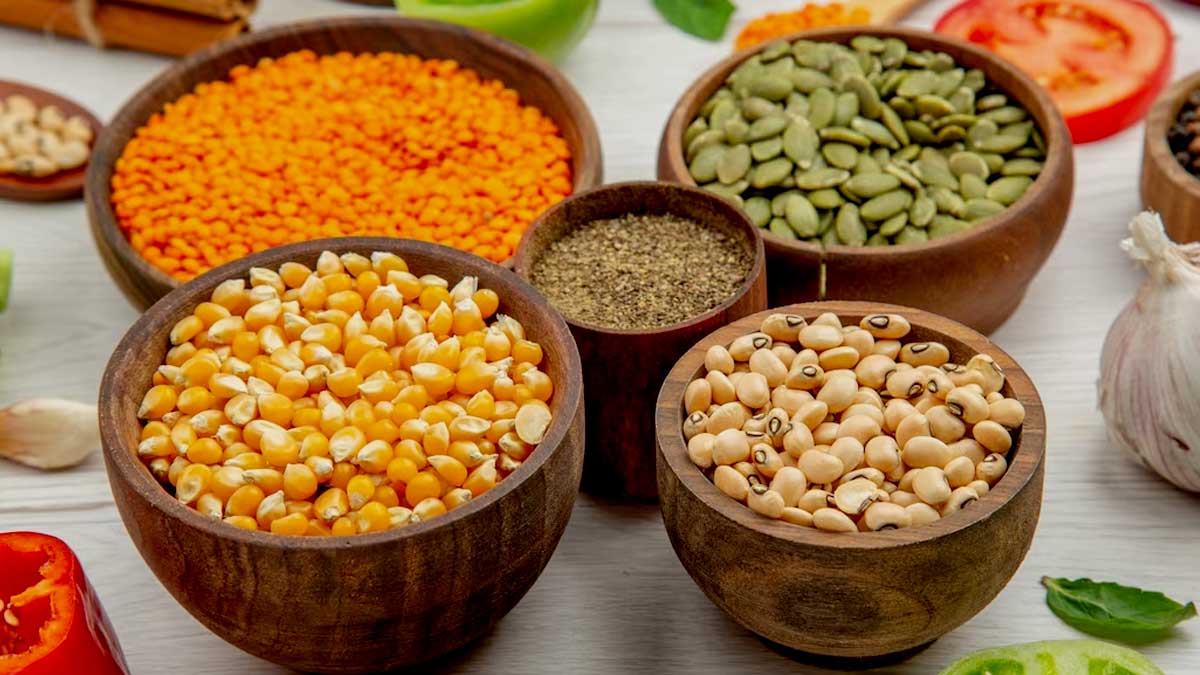
Constipation is the inability to pass stool easily and we have all dealt with it at some point in our lives. One of the main reasons behind it is the lack of a fibre-rich diet. Fibre is considered a nutrient that is essential for maintaining good digestive health and overall well-being. It comes in two types namely soluble and insoluble fibre. Soluble fibre dissolves in water, whereas insoluble fibre does not dissolve in water and adds bulk to the stool, aiding in regular bowel movements. Therefore, low levels of fibre in the body can often lead to complications. In an interaction with the OnlyMyHealth team, Sumaiya A, Clinical Dietitian, CDE, Fortis Hospital, Kalyan, shares how the body signals a fibre deficiency.
Also Read: Vitamin B12 Deficiency May Affect Your Walking Style; Here's How
Role Of Fibre And Its Benefits

“Fibre is a type of complex carbohydrate found in plants, it is not digested by the human body but is essential for overall nutrition,” said Sumaiya, adding, “Unlike other forms of carbohydrates, that are broken down by the body to provide fuel in the form of glucose, fibre passes through the digestive system providing numerous health benefits.”
Fibre offers a host of health benefits, some of which are mentioned below:
- High-fibre foods are incredibly filling. Since they are bulky and take up a lot of space in the stomach, they leave less space for the consumption of high-calorie food. Fibre-rich food is highly recommended if a person is trying to reduce their calorie intake and lose or maintain their current body weight.
- Fibre is well known for sustaining regular bowel movements and helping to prevent constipation as it stimulates the digestive system.
- Good sources of fibre are beneficial for maintaining healthy colon function, which can help to prevent colon and other types of cancer.
- People who eat a fibre-rich diet are more likely to maintain a healthy weight and less likely to put on extra weight.
Signs Of Fibre Deficiency

Low levels of fibre in the body can lead to certain signs. These include:
Irregular bowel movements: Difficulty passing stool or experiencing infrequent bowel movements can be a sign of insufficient fibre intake.
Constipation: Fibre helps add bulk to the stool and promotes regular bowel movements. Low levels of fibre can contribute to constipation, characterised by difficulty or strain in passing stool. This can sometimes cause haemorrhoids, also known as piles, which cause swellings inside or around the bottom (the rectum and anus).
Lack of satiety: Fibre-rich foods tend to be more filling and can contribute to a sense of fullness and satisfaction after meals. A deficiency in fibre may result in feelings of hunger or a lack of satiety even after consuming a meal.
Blood sugar fluctuations: Adequate fibre intake can help regulate blood sugar levels by slowing down the absorption of glucose. A deficiency in fibre may contribute to blood sugar imbalances and spikes.
Also Read: Non-Stop Burping: When Does It Become Concerning?
Weight management challenges: Fibre-rich foods can aid in weight management by promoting feelings of fullness and reducing calorie intake. A lack of fibre may make it more challenging to control weight.
Increased risk of chronic diseases: Insufficient fibre intake has been associated with a higher risk of developing various chronic diseases, including heart disease, diabetes, and certain types of cancer. In fact, a study published in the Nutrients found that dietary fibre has several protective effects against chronic diseases, including cardiovascular disease, diabetes, metabolic syndrome, inflammatory bowel syndrome, diverticular disease, obesity, and colorectal cancer.
How To Increase Fibre Levels In The Body

Sumaiya said, “To help combat such low fibre systems in the body, we can include fibre-rich foods in the diet like whole wheat grain, oat and oat bran, vegetables like cucumber, tomato, carrot, fruits like apple, pear, banana, nuts and oilseeds like flaxseeds, chia seeds, almond, black raisins, along with beans and peas.”
In addition, remember to drink plenty of water when increasing fibre intake to help prevent constipation. If necessary, consider consulting a registered dietitian for personalised guidance on increasing fibre intake and addressing any specific dietary concerns.







